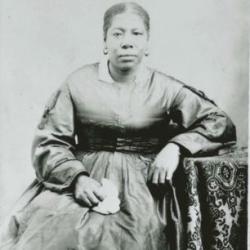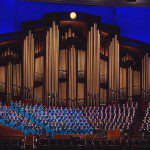
One of the courses that I’m teaching this term is a small class on the Qur’an in English. Reading this evening in Surah 49 (“The Private Rooms”) in preparation for tomorrow morning’s class session, I came across this passage as it’s rendered by M. A. S. Abdel Haleem in his Oxford translation:
Believers, if a troublemaker brings you news, check it first, in case you wrong others unwittingly and later regret what you have done. (Qur’an 49:6)
Reading that verse, I found myself thinking of anonymous online slanders and slanderers.
Of course, I have to acknowledge that I’ve seen precious little “regret” among those who credit the tales recounted online by malevolent people. Too bad. Nasty gossip and malicious backbiting have always been evils, but now, thanks to the power of social media, the potential reach of those evils has been vastly amplified.
Here’s another good passage, somewhat akin to the previous one:
Believers, no one group of men should jeer at another, who may after all be better than them; no one group of women should jeer at another, who may after all be better than them; do not speak ill of one another; do not use offensive nicknames for one another. . . . Those who do not repent of this misbehavior are evildoers. Believers, avoid making too many assumptions — some assumptions are sinful — and do not spy on one another or speak ill of people behind their backs. (Qur’an 49:11-12)
Indeed.
***
Speaking of classes, I thought that some might be interested in the list of readings from the syllabus for my Islamic Humanities (IHUM 242) course this term. It’s a highly inadequate list — we can’t possibly do justice to the literature of the Islamic world, let alone to the arts more generally, in a single semester, although we do devote some attention to architecture and related matters — and it’s rather too Persian-leaning, but, still, I think that it includes some really good things:
Al-Ghazali’s Path to Sufism: His Deliverance from Error (al-Munqidh min al-Dalal), R.J. McCarthy (trans.)
ISBN-10: 1887752307 or ISBN-13: 978-1887752305
Attar, Conference of the Birds (Penguin Classics), Afkham Darbandi (trans.)
ISBN-10: 0140444343 or ISBN-13: 978-0140444346
Arabian Nights (New Deluxe Edition), Muhsin Mahdi (ed.), Hussain Hadawy (trans.)
ISBN-10: 0393331660 or ISBN-13: 978-0393331660
Spiritual Verses (Penguin Classics), Alan Williams (trans.)
ISBN-10: 0140447911 or ISBN-13: 978-0140447910
Ramsay Wood, Kalila and Dimna, Vol 1, Fables of Friendship and Betrayal from the Panchatantra, Jatakas, Bidpai, Kalila and Dimnah and Lights of Canopus
You should get this on Kindle.
- ISBN-10: 0863566618 or ISBN-13: 978-0863566615
Nizami and Rudolf Gelpke, The Story of Layla and Majnun
ISBN-10: 0930872525 or ISBN-13: 978-0930872526
Ferdowsi and Davis, The Shahnameh: The Persian Book of Kings
ISBN-10: 0143104934 or ISBN-13: 978-0143104933
Rubaiyat of Omar Khayyam, translated by Edward Fitzgerald – you can access any edition you want.
Posted from Park City, Utah











